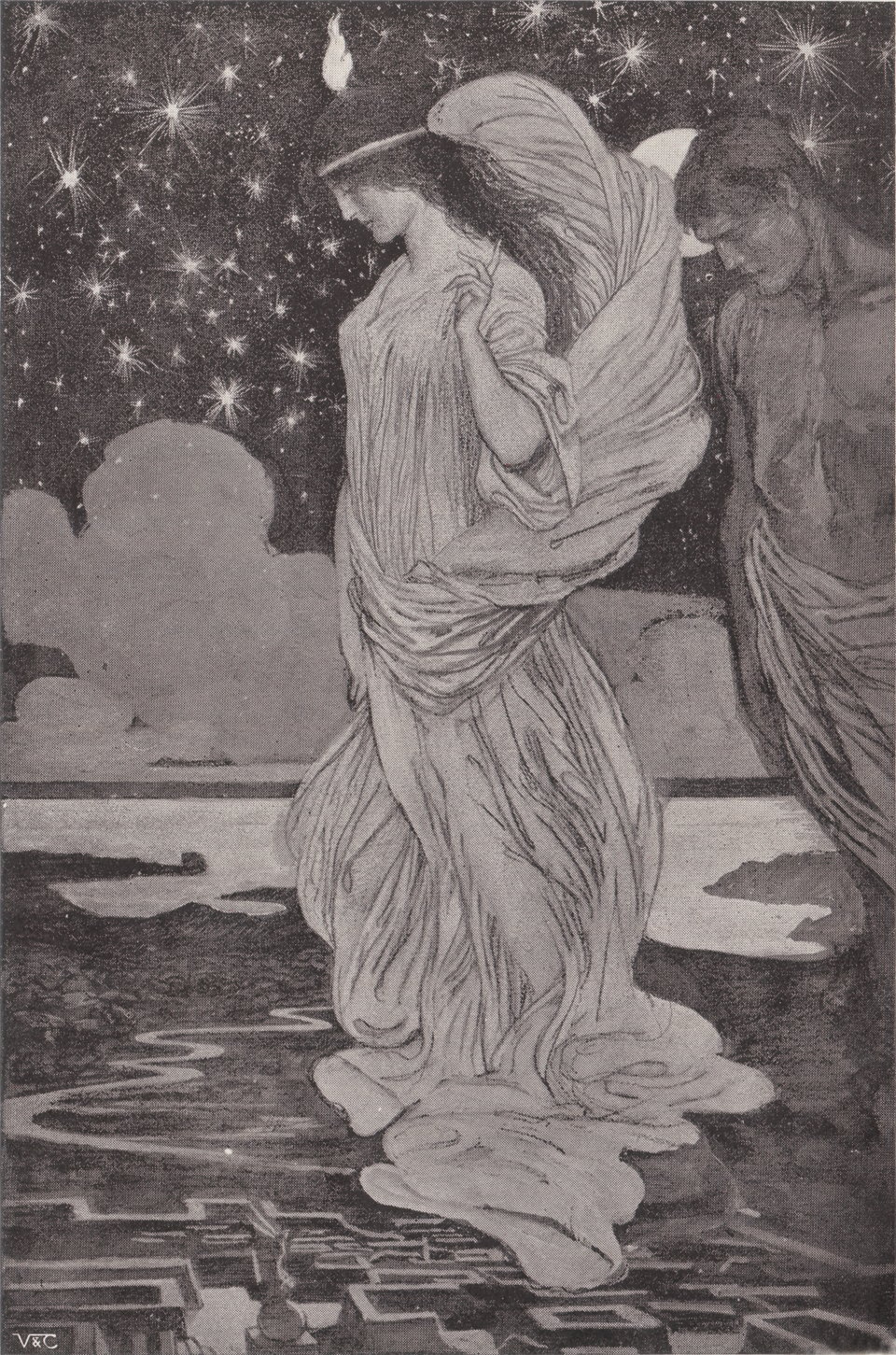Anthropology and friendship

Ayesha, The Return of She by H. R. Haggard from of the Visual Haggard Archive
Someone recently remarked to me how learning to draw, even just a little, is a tool for expressing yourself in very much the same way that studying grammar enriches options for expression, and therefore everyone should dabble in it.
This week I worked at a booth at a tech conference, handing out branded swag to anyone that wanted to stop by and chat about our software. In the past this conference was about the "glue" that held software together, meaning platforms, tooling, languages, and other operational pieces. This year, however, about half of the talks had "AI" in the title, and I'm willing to bet many of the ones that didn't still mentioned it somewhere during the talk. For the talks where I was able to attend, I was a little frustrated by some of the assertions made by the speakers — quotes like "the self-driving car has a true understanding of what it's doing, in fact it has the same sort of understanding I have when driving" and "this AI has an ego." I'm concerned that technologists lack a fundamental knowledge of what understanding even is at a philosophical level, and that those making these statements don't have an anthropology worked out which includes categories for debate or discussion. I find Alan Jacobs' discussion about the Oppenheimer Principle (and Scott Alexander's Safe Uncertainty Fallacy which Jacobs mentions in the link) to a useful distillation of the problems with the way this is conversations around AI are being handled.
Another problem with these kinds of discussions that I see — and one I spent talking to a fellow attendee about quite a while at the conference — are the pieces missing between a Liberal Arts education and a STEM-like education that might be useful for framing these conversations. In my opinion each could stand to learn from the other, and I'd like to spend some time exploring and writing about the gaps and consequences of those gaps, so I'll ask you: if you had a STEM or Engineering education, or a Liberal Arts education, what pieces do you see as missing from that education? What's the effect of those pieces absence? What would you change about either?
Returning briefly to anthropology, Delilah and I have been discussing this article about Friendship and Belonging in the Middle Age, particularly the part about friendships requiring sacrifice, and that sacrifice being challenging to both find and provide during this stage of our lives (small children). There are different types of friends (Aristotle identifies three: utility, pleasure, and "perfect"), and while I wouldn't say friendships of utility or pleasure are easy for either of us to come by, perfect friendship which seeks the virtue or good of the other person requires the most sacrifice, and has been the hardest to find by far. To this observation I would ask, if you were trying to foster friendship, how would you go about it?
This past week was our 17 year wedding anniversary, and we got to see a live production of Les Misérables here in Denver. If you haven't ever seen it, I cannot recommend it highly enough. The music is just so excellent (that clip is from the movie version, and I like the stage production more, but the music is the same.)